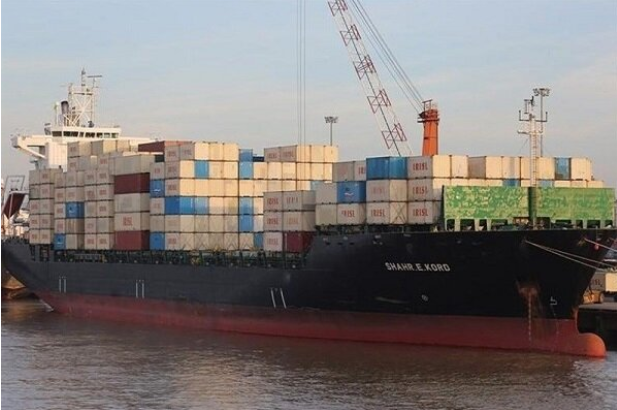March 26, 2021

The Wall Street Journal says Israel has been attacking Iranian ships for more than a year but that Iran has remained silent about most of the attacks.
The newspaper quoted an unnamed Iranian official as saying the Islamic Republic would “look weak” if it announced the attacks and then didn’t do anything in retaliation.
The Journal said Israel has attacked “at least a dozen” Iranian ships, mostly tankers taking crude oil to Syria. It said Israel acted “out of concern that petroleum profit is funding extremism in the Middle East.”
But that didn’t make any sense because Iran has granted Syria a line of credit and the oil deliveries to Syria are chalked up against that line of credit, meaning Iran is getting no payments from the deliveries to Syria. What’s more, most analysts don’t expect Syria to repay the line of credit because the country is, for all practical purposes, bankrupt.
In May 2019, four tankers were damaged by limpet mines off the UAE emirate of Fujairah. The Pasdaran were uniformly blamed. In one case, Pasdaran were filmed in a small boat removing a limpet mine that had failed to detonate. None of the ships was seriously damaged.
Israel began its attacks on Iran’s ships a few months later, in October 2019, according to The Wall Street Journal, hitting at least three in 2019, six in 2020, and two so far this year, according to shipping professionals it talked to, including one in Tehran.
Only two ships were damaged enough to force them to return to Iran for repairs. The others went on to deliver their cargoes. So, the attacks don’t appear to have amounted to much and were not at all like most Israeli covert actions, which are intended to inflict much pain.
Not until this year have there been suggestions that Iran has retaliated.
On February 25, Helios Ray, an Israeli ship that carries cars from port-to-port, was hit with an explosion in the Gulf of Oman, not far from Iranian waters. Israeli Prime Minister Binyamin Netanyahu said the attack was launched by Iran. Officials said the vessel was damaged by two magnetic bombs, one attached to each side of the vessel.
Iran flatly denied any involvement and accused Israel of “playing the victim to distract attention away from all its destabilizing acts and malign practices in the region.” The explosions were above the waterline, so the ship was able to make it to port in Dubai for repairs, which took only a few days.
In early March, global news outlets gave much attention to Israel’s environment minister, Gila Gamliel, who charged that a Libyan-owned tanker, Emerald, sailing to and from Iran, had intentionally spilled tar off Israel’s coastline February 1 and polluted 90 percent of the country’s beaches. But days later, Israeli Defense Minister Benny Gantz said there was no evidence to suggest the spill was intentional and it was most likely an accidental leak from the tanker.
An Israeli television channel reported March 25 that an Israeli ship had been struck by a missile in the Arabian Sea, but the damage was so minor that it just continued on its voyage to India.
Then on March 10, the Iranian-owned Shahr-e Kord was damaged in the Mediterranean by an “explosive device” that set off a fire that Iran’s national shipping line said was quickly extinguished. This attack drew considerable media attention and much speculation on how Iran would retaliate.
On March 13, an unnamed member of what the Iranian media called an Iranian investigative team said it was “highly likely” that Israel was behind the attack. But Foreign Ministry spokesman Saeed Khatibzadeh said only that Iran was “seeking to identify the perpetrators of this sabotage.” In other words, the Islamic Republic is avoiding labeling Israel flatly as the attacker and thus has no cause to retaliate.
As for Israel retaliating for the February attack on the Helios Ray, Al-Monitor reported that most of Israel’s senior military officers opposed any retaliatory attack, given that the damage was limited and there were no casualties.
They argued, Al-Monitor said, that it would be better to use the attack for diplomatic leverage, citing the attack as an illustration of Iran’s continuing resort to terrorism and as part of Israel’s effort to convince the Biden Administration to maintain sanctions on Iran. The main opponent to that view was said to be Mossad chief Yossi Cohen, who retires in June. Al-Monitor said, “Cohen’s position has been rejected, for now. Nonetheless, no final decision has been made, either.”
In an article published the day after Now Ruz, the Israeli daily Haaretz said Israel had actually attacked “several dozen” ships, mostly tankers headed to Syria, and caused damage in the billions of dollars. But it said it did not sink any ships and didn’t do any damage that caused any fuel leaks into the ocean. It didn’t explain how Israel could do so much damage by doing so little damage!
